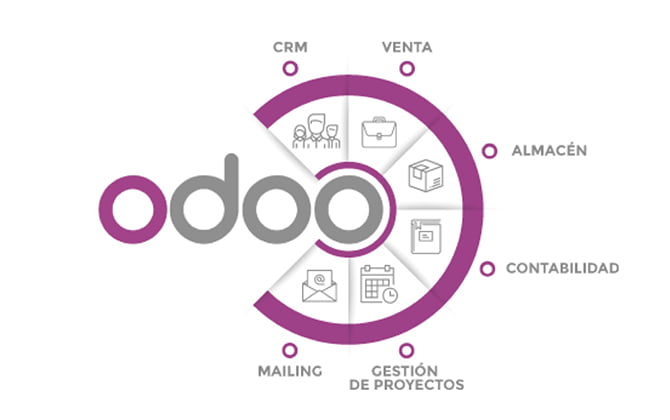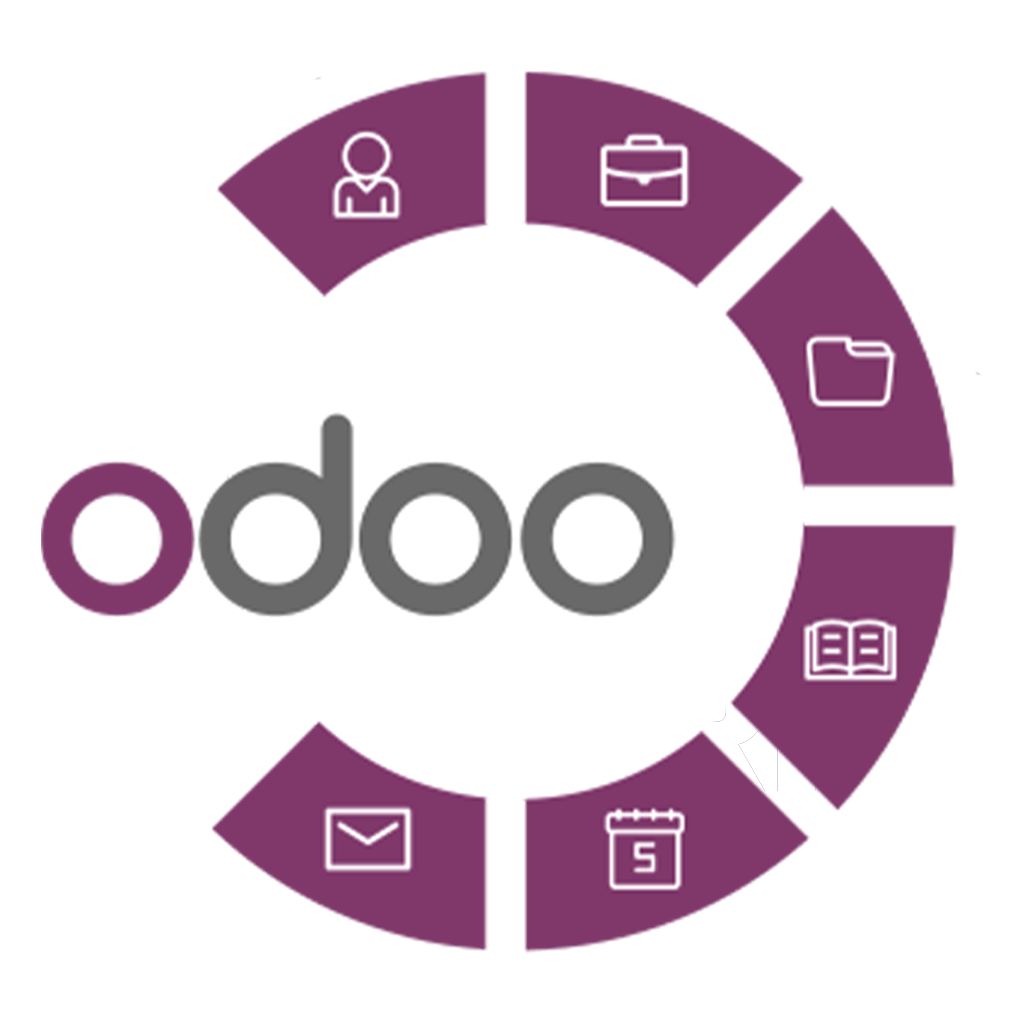Understanding Odoo Sales Module

Overview of Odoo: A Brief Introduction
Odoo, formerly known as OpenERP, is a comprehensive suite of open-source business applications. It is designed to streamline and integrate various business processes, ranging from customer relationship management (CRM) to human resources, inventory management, accounting, and more. Developed using Python programming language, Odoo offers a modular approach, allowing businesses to select and customize the specific modules they need to meet their requirements.
One of the standout features of Odoo is its flexibility and scalability, making it suitable for businesses of all sizes and industries. Whether you are a small startup or a large enterprise, Odoo can adapt to your needs and grow with your business. With thousands of modules available, Odoo covers almost every aspect of business operations, providing a holistic solution for companies worldwide.
Introduction to Odoo Sales Module

The Odoo Sales module is a powerful tool designed to streamline the sales process from lead generation to order fulfillment. It integrates seamlessly with other Odoo modules such as CRM, inventory management, and accounting, providing a unified platform for managing all aspects of sales operations.
At its core, the Odoo Sales module focuses on improving efficiency and productivity by automating repetitive tasks, enabling sales teams to focus on building relationships with customers and closing deals. From managing leads and opportunities to creating quotations, processing orders, and invoicing customers, Odoo Sales simplifies the entire sales cycle, ensuring a seamless experience for both sales representatives and customers.
Key Features of Odoo Sales

The Odoo Sales module offers a wide range of features designed to enhance the sales process and drive revenue growth. Some of the key features include:
- Lead Management: Odoo Sales allows businesses to capture, track, and nurture leads effectively. Sales representatives can qualify leads based on predefined criteria and convert them into opportunities with just a few clicks.
- Quotation Management: Creating professional-looking quotations has never been easier with Odoo Sales. Sales representatives can generate customized quotations quickly, including product descriptions, pricing, discounts, and terms, to send to potential customers.
- Order Processing: Once a quotation is accepted, Odoo Sales simplifies the order processing workflow, allowing sales teams to convert quotations into sales orders seamlessly. Integration with inventory management ensures that stock availability is always up-to-date, preventing over-selling and backorders.
- Invoicing: With Odoo Sales, businesses can generate invoices directly from sales orders, eliminating the need for manual data entry and reducing the risk of errors. Invoices can be customized to match the company’s branding and sent to customers electronically for faster payment processing.
- Reporting and Analytics: Odoo Sales provides real-time insights into sales performance through customizable reports and dashboards. Sales managers can track key metrics such as revenue, pipeline status, conversion rates, and sales team performance, allowing them to make informed decisions and optimize sales strategies.
Benefits of Using Odoo Sales
Implementing Odoo Sales offers numerous benefits for businesses looking to streamline their sales processes and improve overall efficiency. Some of the key benefits include:
- Increased Productivity: By automating repetitive tasks and providing a centralized platform for managing sales activities, Odoo Sales enables sales teams to work more efficiently and focus on closing deals.
- Improved Collaboration: With Odoo Sales, collaboration between sales representatives, managers, and other departments becomes seamless. Communication is streamlined, and information is readily accessible, fostering better teamwork and alignment across the organization.
- Enhanced Customer Experience: Odoo Sales enables businesses to provide a personalized and responsive experience for customers throughout the sales journey. From initial contact to post-sales support, customers receive timely and relevant communication, leading to higher satisfaction and loyalty.
- Better Decision Making: With access to real-time data and analytics, sales managers can make data-driven decisions to optimize sales performance and allocate resources effectively. Identifying trends, forecasting demand, and understanding customer behavior becomes easier with Odoo Sales.
- Cost Savings: By eliminating manual processes, reducing errors, and improving efficiency, Odoo Sales helps businesses save time and resources. The modular nature of Odoo also means that companies can scale their sales operations without incurring significant additional costs.
Odoo Sales vs. Traditional Sales Management Systems
Compared to traditional sales management systems, Odoo Sales offers several advantages that make it a superior choice for modern businesses:
- Integration: Unlike traditional sales management systems that often require separate software for CRM, inventory management, and accounting, Odoo Sales provides a fully integrated solution. This integration ensures seamless data flow between different departments, reducing duplication of efforts and improving overall efficiency.
- Customization: Traditional sales management systems are often rigid and difficult to customize according to specific business requirements. In contrast, Odoo Sales offers a high degree of flexibility, allowing businesses to tailor the system to their unique needs through custom modules, workflows, and user interfaces.
- Scalability: As businesses grow and evolve, their sales management needs may change. Traditional systems may struggle to keep up with increasing complexity and volume. Odoo Sales, on the other hand, is highly scalable, allowing businesses to add new features and modules as needed without disrupting existing operations.
- Cost-effectiveness: Implementing and maintaining traditional sales management systems can be expensive, with upfront licensing fees, installation costs, and ongoing maintenance expenses. Odoo Sales, being open-source, eliminates the need for expensive licensing fees and offers a cost-effective alternative for businesses of all sizes.
- Accessibility: With the rise of remote work and mobile technology, accessibility has become a critical factor in sales management systems. Odoo Sales is cloud-based and accessible from any device with an internet connection, enabling sales teams to work from anywhere, anytime.
Setting Up Odoo Sales
Installation and Configuration of Odoo Sales Module:
Setting up Odoo Sales begins with installing the Sales module within the Odoo platform. This process typically involves accessing the Odoo application, navigating to the Apps menu, and selecting the Sales module for installation. Once installed, configuring the Sales module involves defining key parameters such as currency settings, tax rules, payment terms, and sales teams. Additionally, customization of sales pipelines and stages can be done to align with specific business processes and requirements.
Customization Options and Configuration Settings:
Odoo Sales offers extensive customization options to tailor the sales workflow according to the unique needs of your business. This includes customization of sales order templates, product catalogs, price lists, and customer profiles. Furthermore, configuration settings allow users to automate tasks such as lead assignment, quotation generation, and order fulfillment. Leveraging these customization options ensures that the Odoo Sales module aligns perfectly with your organization’s sales processes, leading to increased efficiency and productivity.
Integrating Odoo Sales with Other Modules:
One of the key advantages of Odoo is its seamless integration capabilities across various modules. Integrating Odoo Sales with modules such as Inventory Management, Accounting, CRM, and E-commerce enables a holistic approach to sales management. For example, integrating with Inventory Management allows for real-time inventory updates and streamlined order fulfillment processes. Similarly, integration with Accounting ensures accurate financial reporting and tracking of sales transactions. By harnessing the power of integration, businesses can achieve greater operational efficiency and visibility across their entire value chain.
User Management and Permissions:
Effective user management and permissions are essential for maintaining data security and ensuring that the right users have access to the appropriate features within Odoo Sales. With Odoo’s robust user management capabilities, administrators can create user accounts, define roles, and assign permissions based on job responsibilities. This granular control over user access helps prevent unauthorized access to sensitive information and ensures compliance with data protection regulations. Additionally, user permissions can be customized to restrict access to specific sales documents, reports, or modules, further enhancing security and data integrity.
Managing Sales Processes in Odoo
-
Lead Management: Capturing and Nurturing Leads
Lead management is the first step in the sales process, where businesses identify and capture potential customers who have shown interest in their products or services. Odoo provides robust features for lead management, allowing businesses to efficiently track and nurture leads throughout the sales cycle. With Odoo’s CRM module, businesses can easily capture leads from various sources such as website inquiries, email campaigns, and social media channels. Leads can be categorized, assigned to sales teams, and prioritized based on their likelihood to convert into customers.
Furthermore, Odoo offers powerful tools for lead nurturing, including automated email campaigns, lead scoring, and personalized communication. By leveraging these features, businesses can engage with leads effectively, provide relevant information, and guide them through the sales funnel. Additionally, Odoo’s reporting and analytics capabilities enable businesses to track the effectiveness of their lead generation and nurturing efforts, identify trends, and optimize their strategies for better results.
-
Opportunity Management: Tracking and Converting Opportunities
Once leads have been qualified and show potential for conversion, they are converted into opportunities in Odoo’s CRM module. Opportunities represent potential deals or sales that are in progress and require further nurturing and follow-up. Odoo provides a centralized platform for tracking and managing opportunities, allowing sales teams to monitor the progress of each opportunity, collaborate with team members, and take necessary actions to move deals forward.
With Odoo’s pipeline management feature, businesses can visualize their sales pipeline, identify bottlenecks, and prioritize opportunities based on their stage and value. Additionally, Odoo offers integration with communication tools such as email and calendar, enabling seamless communication and collaboration among team members. By effectively managing opportunities in Odoo, businesses can increase their sales velocity, improve conversion rates, and drive revenue growth.
-
Quotation Management: Creating and Sending Professional Quotes
Quotation management is an integral part of the sales process, where businesses provide prospective customers with detailed proposals outlining the products or services offered, pricing, and terms. Odoo simplifies the quotation management process by providing intuitive tools for creating professional-looking quotes quickly and easily. Businesses can customize quote templates, add product descriptions and pricing, and include terms and conditions to meet the specific needs of each customer.
Moreover, Odoo’s integration with inventory management and pricing modules ensures that quotes are accurate and reflect the latest product availability and pricing information. Once quotes are created, businesses can send them to customers directly from Odoo, track their status, and follow up as needed. With Odoo’s built-in eSignature feature, customers can electronically sign quotes, streamlining the approval process and expediting deal closure. Overall, Odoo’s quotation management capabilities enable businesses to create compelling proposals, streamline the sales cycle, and win more deals.
-
Sales Order Management: Streamlining Order Processing
Once quotes are accepted by customers, they are converted into sales orders in Odoo’s sales module. Sales orders represent a commitment from customers to purchase products or services, and it is essential to manage them efficiently to ensure timely delivery and customer satisfaction. Odoo offers robust features for sales order management, allowing businesses to create, track, and fulfill orders seamlessly.
With Odoo, businesses can generate sales orders directly from accepted quotes, eliminating manual data entry and reducing the risk of errors. Orders can be automatically routed to the appropriate departments for processing, such as inventory management, production, and shipping. Additionally, Odoo provides real-time visibility into order status, inventory levels, and delivery schedules, enabling businesses to make informed decisions and address any issues proactively.
-
Invoicing and Payment Management
Invoicing and payment management are critical aspects of the sales process, where businesses generate invoices for products or services sold and track payments from customers. Odoo simplifies invoicing and payment management with its integrated accounting module, allowing businesses to create professional invoices, send them to customers, and track payment status in real time.
With Odoo, businesses can generate invoices automatically based on sales orders or create them manually as needed. Invoices can be customized with company branding, payment terms, and other relevant information to meet the requirements of each customer. Moreover, Odoo offers flexible payment options, including online payments, bank transfers, and credit card payments, making it convenient for customers to settle their invoices.
Leveraging Automation and Analytics
Workflow Automation in Odoo Sales:
Odoo Sales, a comprehensive sales management software, offers robust features for automating various aspects of the sales process. From lead management to order processing, automation streamlines repetitive tasks, reducing manual effort and minimizing errors. Through Odoo’s intuitive interface, users can set up automated actions triggered by specific events, such as lead creation, quotation approval, or invoice generation. For instance, automated email reminders can be configured to follow up with leads or customers at predefined intervals, ensuring timely communication and enhancing customer engagement. Furthermore, integration with other Odoo modules like Inventory and Accounting enables seamless data flow across departments, eliminating silos and fostering collaboration.
Reporting and Analytics: Tracking Sales Performance:
Effective sales management relies on actionable insights derived from accurate data analysis. Odoo Sales provides comprehensive reporting tools that enable users to track key performance indicators (KPIs) and monitor sales activities in real-time. Customizable dashboards offer a visual representation of sales metrics, such as revenue, pipeline status, conversion rates, and sales team performance. By drilling down into specific criteria, managers can identify trends, spot opportunities, and address potential bottlenecks proactively. Moreover, built-in analytical tools facilitate in-depth analysis of sales data, allowing stakeholders to gain a deeper understanding of customer behavior, market trends, and product performance. With access to timely and relevant information, decision-makers can devise informed strategies to drive sales growth and maximize profitability.
Forecasting and Predictive Analytics:
Predicting future sales trends is crucial for effective resource allocation and strategic planning. Odoo Sales leverages advanced forecasting techniques and predictive analytics to anticipate demand and optimize inventory management. By analyzing historical sales data, market dynamics, and external factors, the system generates accurate sales forecasts tailored to specific products, regions, or customer segments. These forecasts enable businesses to adjust inventory levels, allocate resources efficiently, and capitalize on emerging opportunities. Moreover, predictive analytics algorithms can identify patterns and correlations within the data, uncovering hidden insights that inform strategic decision-making. Whether forecasting sales volumes, predicting customer churn, or optimizing pricing strategies, Odoo’s predictive analytics capabilities empower organizations to stay ahead of the curve and adapt to changing market conditions effectively.
Integrating Third-Party Tools for Advanced Analytics:
While Odoo Sales offers robust built-in analytics features, organizations may benefit from integrating third-party tools to enhance their analytical capabilities further. By connecting with external data sources, such as CRM systems, marketing platforms, or business intelligence tools, businesses can access a broader range of data and unlock deeper insights. For example, integrating with Google Analytics enables businesses to track website traffic, monitor user behavior, and correlate online activities with sales performance.
Similarly, integration with customer relationship management (CRM) software allows for a holistic view of the customer journey, facilitating personalized marketing campaigns and improving customer retention. Additionally, leveraging machine learning algorithms from platforms like TensorFlow or sci-kit-learn can enable more sophisticated analysis, such as sentiment analysis, demand forecasting, or customer segmentation. By harnessing the power of third-party tools, organizations can leverage automation and analytics to gain a competitive edge in the market and drive sustainable growth.
Enhancing Customer Engagement
-
Customer Relationship Management (CRM) in Odoo:
Odoo’s CRM module serves as the cornerstone of customer engagement. It provides businesses with a centralized platform to manage interactions with prospects and customers throughout the sales cycle. From lead generation to opportunity tracking and customer support, Odoo CRM streamlines processes, enabling organizations to build meaningful relationships with their clientele. Key features include lead scoring, pipeline management, email integration, and activity tracking. With Odoo CRM, businesses can gain valuable insights into customer behavior and preferences, allowing for targeted marketing campaigns and personalized interactions.
-
Personalizing Customer Interactions:
Personalization plays a pivotal role in today’s customer engagement strategies. Customers expect personalized experiences tailored to their needs and preferences. Odoo empowers businesses to deliver personalized interactions at scale through its robust customization capabilities. By leveraging data collected within the CRM system, businesses can segment their audience and tailor communications based on demographics, purchase history, and browsing behavior. Whether through targeted email campaigns, personalized product recommendations, or customized offers, Odoo enables businesses to engage customers in meaningful ways, fostering loyalty and satisfaction.
-
Communication Tools: Email Integration, SMS Notifications, etc.:
Effective communication is essential for nurturing customer relationships. Odoo offers a range of communication tools to facilitate seamless interactions with customers across multiple channels. Email integration allows businesses to send personalized email campaigns directly from the CRM system, ensuring timely and relevant communication. Additionally, Odoo supports SMS notifications, enabling businesses to reach customers on their preferred device. Whether sending order confirmations, appointment reminders, or promotional messages, Odoo’s communication tools help businesses stay connected with their audience, driving engagement and retention.
-
Customer Portal: Empowering Customers with Self-Service Options:
In today’s digital age, customers value convenience and autonomy. Odoo’s customer portal empowers customers by providing self-service options for accessing account information, placing orders, and resolving inquiries. Through the portal, customers can view order history, track shipments, and update their contact details, eliminating the need for manual intervention from customer support agents. Moreover, the customer portal serves as a hub for accessing relevant resources such as product documentation, FAQs, and support articles, enhancing the overall customer experience. By offering self-service capabilities, businesses can reduce service costs, improve efficiency, and increase customer satisfaction.
-
Feedback Management and Surveys:
Feedback is invaluable for understanding customer needs and improving the quality of products and services. Odoo facilitates feedback management through integrated survey tools that enable businesses to collect, analyze, and act upon customer feedback effectively. Whether measuring satisfaction levels, gathering product feedback, or soliciting suggestions for improvement, Odoo’s survey module allows businesses to design custom surveys and distribute them via email or the customer portal. The insights gained from these surveys can inform strategic decision-making, helping businesses enhance their offerings and address customer concerns proactively.
Optimizing Sales with Advanced Features
1. Sales Team Management: Assigning Roles and Responsibilities
Effective sales team management is the cornerstone of any successful sales operation. By assigning clear roles and responsibilities to team members, businesses can ensure that every aspect of the sales process is covered efficiently. Advanced features such as CRM (Customer Relationship Management) software allow for easy tracking of sales activities, pipeline management, and performance analytics.
With role-based access control, managers can define specific permissions for each team member, ensuring that sensitive data remains secure while empowering sales representatives to access the information they need to close deals effectively.
Moreover, gamification elements can be integrated into sales management platforms to incentivize performance and foster healthy competition among team members. Leaderboards, badges, and rewards can motivate sales representatives to exceed targets and drive revenue growth. By harnessing the power of advanced sales team management features, businesses can streamline their operations and unlock the full potential of their sales teams.
2. Sales Campaigns and Marketing Automation
In today’s digital age, traditional marketing methods alone are no longer sufficient to capture the attention of potential customers. Sales campaigns must be strategic, targeted, and personalized to resonate with the target audience. Advanced marketing automation tools leverage data analytics and machine learning algorithms to deliver highly targeted campaigns across multiple channels, including email, social media, and online advertising.
By segmenting leads based on demographic, behavioral, and transactional data, businesses can tailor their messaging to address the specific needs and pain points of each customer segment. Automated workflows can be set up to nurture leads through the sales funnel, from initial contact to conversion, without requiring manual intervention. This not only saves time and resources but also ensures a consistent and cohesive brand experience across all touchpoints.
Furthermore, advanced analytics capabilities enable businesses to track the performance of their marketing campaigns in real-time, allowing for continuous optimization and refinement. By analyzing key metrics such as open rates, click-through rates, and conversion rates, marketers can identify areas for improvement and make data-driven decisions to maximize ROI.
3. Cross-Selling and Upselling Strategies
Cross-selling and upselling are powerful techniques for increasing the lifetime value of customers and maximizing revenue per transaction. Advanced features such as predictive analytics and recommendation engines can help businesses identify cross-selling and upselling opportunities based on customer behavior, purchase history, and preferences.
By analyzing past purchase patterns and browsing behavior, businesses can predict which products or services are likely to be of interest to individual customers and proactively suggest them at the point of sale. Personalized recommendations can be displayed dynamically on e-commerce websites, in email newsletters, or during customer interactions, increasing the likelihood of upselling additional products or services.
Moreover, loyalty programs and targeted promotions can incentivize customers to make repeat purchases and explore complementary offerings. By offering exclusive discounts, rewards, or bundled packages, businesses can encourage customers to increase their spend and deepen their engagement with the brand. By leveraging advanced cross-selling and upselling strategies, businesses can unlock new revenue streams and drive long-term customer loyalty.
4. Integration with E-commerce Platforms
The rise of e-commerce has revolutionized the way businesses sell their products and services, offering unparalleled convenience and accessibility to customers around the globe. To capitalize on this trend, businesses must ensure seamless integration between their sales systems and e-commerce platforms. Advanced integration features allow for real-time synchronization of inventory, pricing, and customer data between the e-commerce website and backend systems, such as CRM and ERP (Enterprise Resource Planning) software.
By centralizing data and streamlining workflows, businesses can eliminate manual data entry errors and ensure data consistency across all channels. This enables a frictionless shopping experience for customers, from browsing products online to making a purchase and receiving post-sale support. Moreover, integration with third-party marketplaces such as Amazon, eBay, and Etsy can extend the reach of businesses and tap into new customer segments.
Furthermore, advanced analytics tools provide insights into customer behavior and preferences, enabling businesses to optimize their e-commerce strategies for maximum impact. By analyzing metrics such as cart abandonment rates, conversion funnels, and customer lifetime value, businesses can identify bottlenecks in the sales process and implement targeted interventions to improve conversion rates and drive revenue growth.
5. Mobile Accessibility and Remote Sales Management
With the proliferation of smartphones and tablets, mobile accessibility has become a critical factor in sales success. Advanced mobile apps and cloud-based solutions empower sales representatives to access critical information and collaborate with colleagues anytime, anywhere. Whether they’re in the office, on the road, or working remotely, sales teams can stay connected and productive, ensuring a seamless customer experience from lead generation to closing.
Moreover, mobile apps can leverage GPS technology to provide location-based insights and recommendations to sales representatives in the field. By analyzing geospatial data and customer proximity, businesses can prioritize sales leads, optimize route planning, and maximize the efficiency of field sales teams. Real-time notifications and alerts can keep sales representatives informed about important events, such as new leads, customer inquiries, or upcoming appointments, ensuring timely follow-up and proactive engagement.
Conclusion:
In conclusion, Odoo Sales offers a comprehensive solution for businesses of all sizes to effectively manage their sales processes, enhance customer relationships, and drive revenue growth. By leveraging its robust features, automation capabilities, and analytical tools, organizations can streamline their operations, improve productivity, and stay ahead of the competition.







